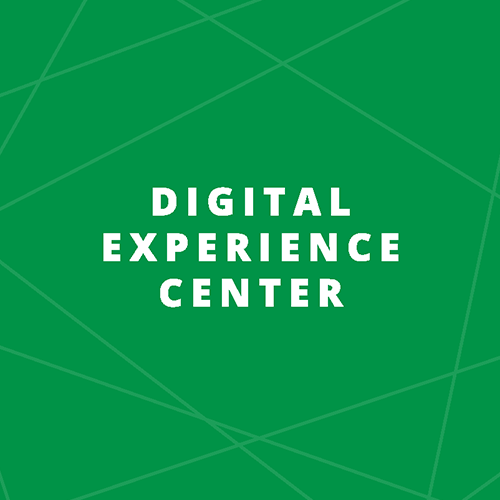
Interested in this theme? Looking to participate or collaborate on an initiative? The increasing prevalence of AI-powered systems and autonomous agents requires a shift in how we approach software development. It is critical to explore technologies, policies, and collaborations that enhance trust in software applications, particularly in an era where AI agents play an active (…)

The Blavatnik Interdisciplinary Cyber Research Center (ICRC) at Tel Aviv University is hosting its 15th annual Cyber Week Conference from June 23-26, 2025. Find out more here.
Interested in this theme? Looking to participate or collaborate on an initiative? In an increasingly digital society, trust in democratic processes, institutions, and identity systems is fundamental to maintaining social stability and governance. Digital democracy relies on resilient e-governance infrastructures such as secure and privacy-preserving digital identities, trusted online platforms for citizen participation and cybersecure (…)
I found this short paper by John Kelsey and Bruce Schneier an insightful take on common fallacies in security – and how, despite not actually increasing security per se, they can still have beneficial side-effects, such making users feel more secure. Nonetheless, the people responsible for the security of their systems should have a clear-eyed (…)
This acquisition, for the astronomical sum of $32 billion, clearly demonstrates the importance of cloud AND cybersecurity services. With access to a large customer base and a world-class multi-cloud security platform, Google aims to better compete with AWS and Azure in an area where it is still struggling to catch up with its rivals.

Carnegie Mellon University Africa, through its Upanzi Network initiative, has launched the Digital Experience Centre (DEC). The DEC serves as a hub for exploring and testing digital public infrastructure, digital public goods, cybersecurity, public health, agriculture and more. It demonstrates how key digital solutions—such as digital identity, digital payments and secure infrastructure—interoperate in real-world scenarios.
We all heard that big AI companies need petabytes of data for training their new models. And we all heard that they don’t really care where they get their data from. Besides potential copyright infringement, this crawling takes another toll on some Open Source projects: Continuously requesting data over and over is similar to a (…)
This article is interesting because it explains the reasons for Google’s change of position on Android OS development. The company is moving away from public contributions to the Android Open Source Project (AOSP) to streamline development and reduce merge conflicts. While Google commits to releasing source code post-release, reduced transparency remains a concern, as it (…)
If the revelation that Trump administration officials accidentally added journalist Jeffrey Goldberg to a Signal group chat about sensitive military plans for airstrikes in Yemen wasn’t alarming enough, new reports now show that multiple Venmo accounts linked to former Trump officials were left publicly accessible, exposing sensitive connections and financial transactions. While the data leaked (…)
This is a curated list of proposed subjects for the upcoming year for our C4DT partners. You can find more suggestions here: Additional Subjects. The projects are split in two categories: hands-on workshops, which are a 1-day training on a given subject, and project suggestions, based on current research of our affiliated labs: Summary of (…)
This is an additional set of hands-on workshops and projects for the upcoming year for our C4DT partners. You can find the chosen selection here: Main Subjects. The projects are split in two categories: hands-on workshops, which are a 1-day training on a given subject, and project suggestions, based on current research of our affiliated (…)

The World Summit on the Information Society (WSIS) is an existing multistakeholder United Nations (UN) process on digital governance and cooperation with a vision of fostering people-centered, inclusive, and development-oriented information and knowledge societies.
Restarting USAID and putting all payments on a blockchain? Why not? Well, for one, as one expert in the sector is quoted as saying: ‘I don’t think we were ever able to find an instance where people were using blockchain where they couldn’t use existing tools’. The Trump administration says that the move to blockchain (…)
This news illustrates how quantum technologies require forward planning in cybersecurity on unprecedented timescales (2035!), to protect against threats that exist in theory before they materialize in practice. What makes this particularly interesting is the proactive approach: the NCSC is implementing a ten-year strategic roadmap to prevent future breaches. The three-phase timeline recognizes both the (…)
Supply chain attacks will continue to hit the news in an increasingly interconnected development ecosystem as organizations rely on third-party components and actions. This seems inevitable. What I find interesting about this case is the threat actors’ approach to compromise software while it is still under development, which sets itself apart from attacks such as (…)
This investigation highlights a crucial cybersecurity reality: while we often focus on sophisticated zero-day exploits, the greater threat comes from known vulnerabilities and misplaced trust. One million Android devices weren’t compromised through cutting-edge techniques but through traditional means – preinstalled backdoors and users installing unvetted apps outside official stores. The victims were vulnerable because they (…)
Interesting to see y-combinator, an incubator for early-stage startups, supporting an EU directive. They say that the European Digital Markets Act actually allows smaller companies to grow, by limiting what the behemoths of the market are allowed to do. Who would’ve thought that at least one of the regulations gets supported by the US Startup (…)
We often hear or talk about ‘IT for good’ and ‘responsible behaviour’ in the digital world, assuming a single universal common understanding of what’s good and what’s responsible. Things start to get confusing when we think about for whom a service or action is good or responsible: for all humanity, including the ‘bad guys’? for (…)
I find China’s attempt to treat data as a formal business asset quite interesting, especially given the massive amount of data the country generates. Companies seem reluctant to adopt this policy though, with only 283 out of 60 million companies participating. But it is still early days, and the months and years to come will (…)
Nobody would seriously argue that a chat bot can replace school counselors in helping pupils taking their first steps on their career paths. However, in the face of a shortage of counselors, aren’t chat bots better than no guidance at all? I like this article for its nuanced discussion of young people relying on specialized (…)
The article reports that the US may have paused its offensive cyber operations against Russia, suggesting it is likely part of a broader diplomatic strategy to encourage talks over the Ukraine conflict, or to possibly focus more on addressing cyber threats posed by China. Scaling back offensive actions without reciprocal guarantees risks exposing critical infrastructure (…)
The text explores the concept of trust in transformative technologies, highlighting the importance of understanding the nuances of “trust” in different contexts. It elevates discussions to a philosophical level by questioning the true essence of trust—whether it is rooted in transparency, reliability, or alignment with human values. By addressing these contrasts, the article encourages dialogue (…)
The European Union’s AI Act has reached a significant milestone by banning AI systems across the EU that pose an ‘unacceptable risk,’ defined as serious threats to people’s rights and safety. The Act will be implemented in phases, with additional regulations for high-risk AI systems expected in the next 2-3 years. With security risks from (…)

Matrix is a widely used open source chat platform. It is an alternative to platforms such as Slack and MSTeams. In line with C4DT’s objective to promote services in the realm of digital trust, we set up our own Matrix instance and migrated our professional communications there in 2019. A privacy-first approach with encrypted chat (…)




